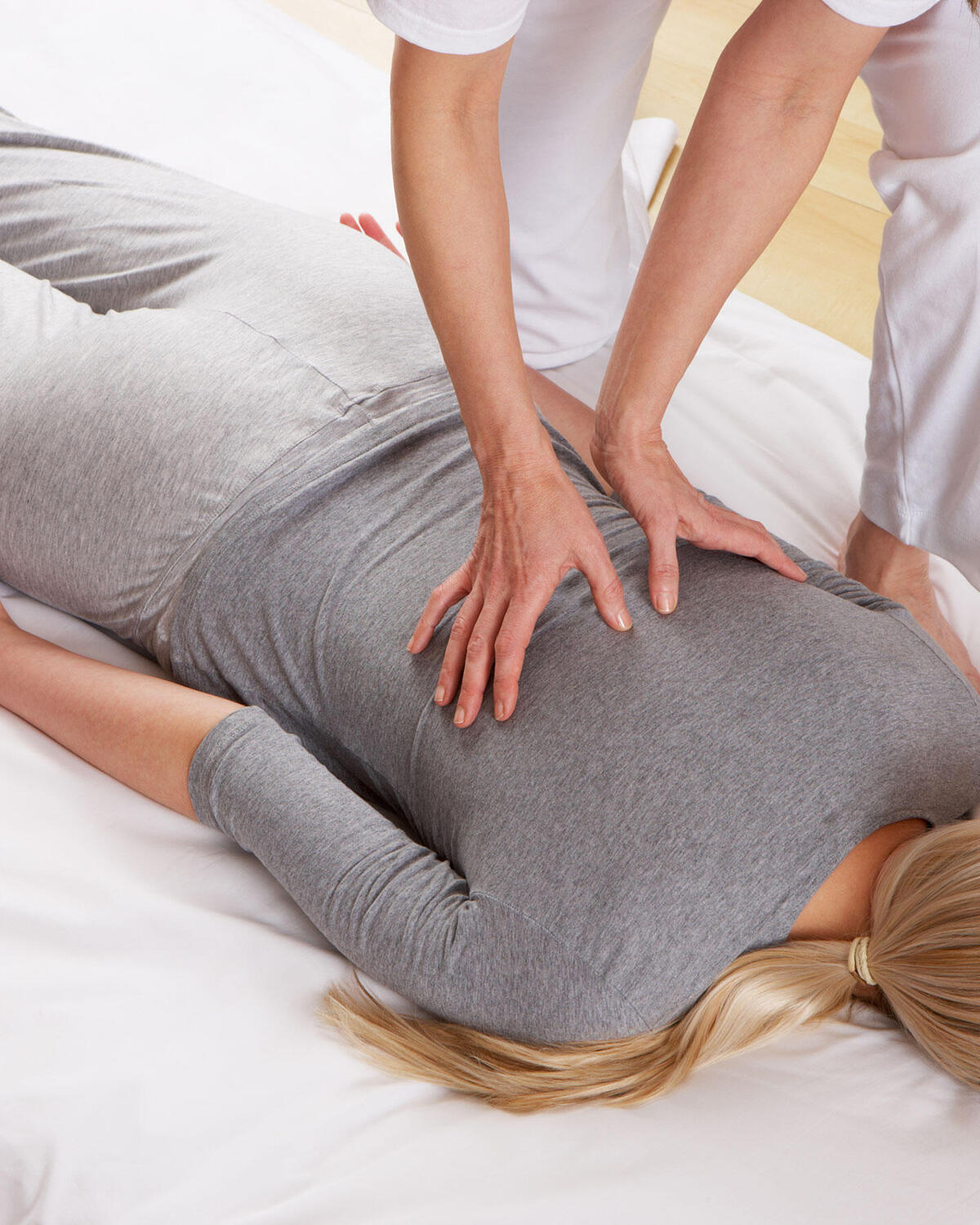- a type of bodywork originating from Japan, sharing the same roots as Traditional Chinese Medicine.
In Japanese, the word ‘shiatsu’ means ‘finger pressure’. In fact, shiatsu may involve massage given with fingers, different parts of the hand, forearm, elbows, knees and feet. Techniques such as acupressure, holding, assisted stretching, joint manipulation and mobilisation may be used. This treatment is fully clothed.
The receiver may be invited to be more actively involved, encouraged to breathe, notice any changes or move. Traditionally offered on a futon on the floor, I practise shiatsu on a treatment couch, making this approach accessible to most people. Techniques can be adapted to a seated position and it is therefore a good treatment option for wheelchair-users.
This treatment can help the person find a deeper connection with themselves and their body, to look at emotional issues and stress stored in the body and to release pain and discomfort. It may help support self-care and life changes which enhance wellbeing. But most importantly, it may help you feel good!
Shiatsu can be a good complement to exercise and active hobbies or work. It is also used to tackle persistent health issues sometimes alongside other therapies (e.g. acupuncture, chiropractic or osteopathy).

Appointments for remedial massage and shiatsu are available Tuesday through to Friday daytime, with evening appointments bookable on Tuesdays and Wednesdays. £45 for 60 minutes.
I invite you to book a session in my welcoming and accessible treatment room, which is purpose-built and private. There is ample on street parking and it is close to good bus routes, near to Nottingham city centre. There is space to securely lock a pedal bike. The room is ground floor and wheelchair friendly with reasonably accessible toilet facilities. Please communicate with me prior to booking if you have specific access requirements. It may be possible for me to hire an alternative room locally if I am not able to meet your access needs at this venue. I welcome people with neurodiversity and members of the LGBT+ community.